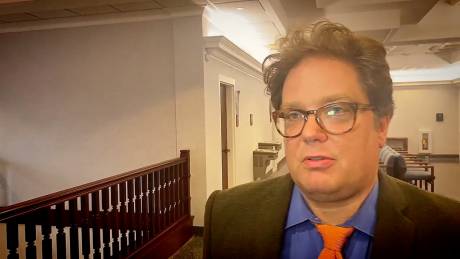
A Buffalo-based attorney who has represented local residents in criminal cases, including a former Batavia High School basketball star he helped win acquittal in a jury trial, has been suspended from practicing law for three years.
Frank T. Housh was suspended by the Fourth Judicial Department of New York for misconduct, mishandling of client funds, neglecting clients, and engaging in conduct involving dishonesty and deceit.
All of the cases involve clients retained in civil matters, not criminal cases, and the clients are not identified in the court's written, seven-page ruling (pdf), so it's unclear where the clients may reside.
Attempts to contact Housh for comment were unsuccessful.
The cases involving misconduct go as far back as 2015 and include misuse of retainer payments, failure to inform clients of case progress, not following through on promises to clients, including not filing cases against defendants, and even apparently falling for another party's attempt to fraudulently obtain a client's lawsuit settlement funds.
The court found, among other findings, that Housh:
- In July 2017, he took a $2,500 retainer and co-mingled it with his law firm's operating funds and did not file the complaint as promised, and then tried to bill the client for additional hours;
- In January 2016, took a $2,500 retainer and co-mingled the funds, then failed to consult with the client on the case and failed to follow through on the case;
- In August 2015, took funds and did not communicate adequately with the client or follow through on the case;
- In February 2017, he was retained in a case where a child had been suspended from school for 35 days and then did not communicate with the client or follow through on efforts to reduce the suspension until after the 35 days had passed and then promised to take further legal proceedings but did not;
- In March 2016, he agreed to represent a family in a bullying case and then failed to respond to his client's numerous inquiries about the case and later led the client to believe a lawsuit and been filed, but he did not file a lawsuit;
- In June 2016, he agreed to assist parents with a special needs child, but after getting no help from Housh, the family obtained its own educational support;
- The oddest assertion is that Housh transferred $137,800 of settlement funds to an LLC without confirming the LLC was associated with his client.
Housh was suspended following a legal process that began with a Grievance Committee receiving multiple complaints about the attorney's conduct. The committee filed a petition with the court outlining 10 complaints, which Housh denied. The court appointed a referee to investigate and hold a hearing, but then the parties agreed on a stipulation upholding many of the factual allegations. The hearing focused on unresolved issues and Housh's assertion -- the potential mitigating factor of his conduct -- that he suffered from mental health issues during this period.
The referee concluded that any mental health issues were unrelated to the misconduct and that Housh did not act with "venal intent."
The court disagreed with the referee's conclusion as to the attorney's intent.
The ruling concludes:
Indeed, although we commend respondent (Housh) for seeking mental health treatment, we agree with the Referee that respondent failed to establish that the misconduct at issue in this case was caused by mental health issues. We disaffirm, however, the Referee’s advisory finding that respondent did not act with venal intent inasmuch as the record establishes that respondent engaged in an extensive course of misconduct that resulted in harm or prejudice to several clients and that was, at times, deceitful and knowingly in favor of respondent’s personal interests at the expense of the interests of his clients and his professional obligations as a lawyer. We further agree with the Referee’s finding that, during respondent’s hearing testimony, respondent often became evasive when questioned about circumstances surrounding the alleged misconduct and his own culpability for the misconduct, which in our view, demonstrates respondent’s lack of remorse or inability to acknowledge the extent of his wrongdoing.
Housh represented Antwan Odom, of Batavia, in 2019 after Odom, then 18, was charged with attempted assault, and criminal possession of a weapon, 4th following a dispute with a former teammate.
Odom was acquitted in a trial that was as colorful as Housh's singular sartorial style. Housh frequently clashed with then-District Attorney Lawrence Friedman, even seeking to have Friedman disqualified from prosecuting the case. Housh's potentially prejudicial statements to reporters early in the case led to then-Judge Charles Zambito instituting a gag order, which The Batavian successfully challenged.
The two attorneys also tangled during jury selection, and then, on another occasion, Housh suggested Friedman was involved in inappropriate communications with the judge.
Housh was representing criminal defendants in Genesee County just prior to his suspension. The Batavian does not have information immediately available on those cases.
Photo: File photo of Frank Housh by Howard Owens
